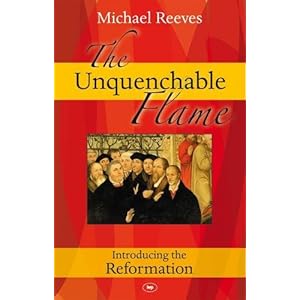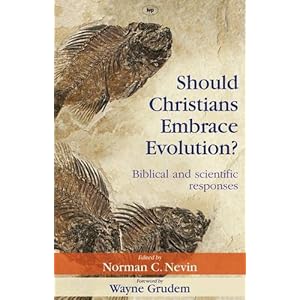I don't know if the name Dy Maurice means anything to you? She was in some of the newspapers yesterday. It was reported she had spent £50,000 trying to evict a squatter from her house. She had rented it out, but her tenant sub-let it and the new tenant refused to leave. It took 15 months in a court battle before he left.
Today we're looking at a parable Jesus tells about bad tenants. Things are tense in Jerusalem. It’s the last week of Jesus’ earthly ministry, and lots of things are happening. Two days ago, Jesus entered Jerusalem with the crowds cheering, welcoming him to the city. Yesterday, he cleared the temple, overturning tables and creating havoc.
On the day we’re now looking at, the temple rulers are ready for him. Last Sunday we saw them asking where Jesus got his authority to do these things. At the time, Jesus didn’t answer directly, instead asking them where John the Baptist (to whom Jesus was closely linked) had got his authority. They refused to answer, so Jesus didn’t answer them either.
But if you notice in your Bible, Jesus immediately tells them this parable, this story. As we come to it, we might not get it on first reading, but there’s no doubt that the chief priests and scribes and the elders understand what Jesus is saying in it. Look at verse 12: ‘And they were seeking to arrest him but feared the people, for they perceived that he had told the parable against them.’
So as we look at the parable more closely, we need to remember this context of conflict. Jesus tells the parable against them - they are the main target. So what is Jesus saying? What can we learn from it? We’ll use two main points: 1. To reject the Son is to reject the Father. 2. The rejected Son will be vindicated by the Father.
So first, to get the context, let's look at the setting, the planted vineyard. At the outset, we’re not told very much about the vineyard being established. Look at verse 1: ‘A man planted a vineyard and put a fence around it and dug a pit for the winepress and built a tower, and leased it to tenants.’ That sentence immediately indicates who the man is, as well as what the vineyard is (remember, a parable is an earthly story with a heavenly meaning).
If I were to say to you about a shamrock, you would probably immediately think of Ireland. Or a thistle, it would remind you of Scotland. In the same way, a kind of national symbol for Israel was the vineyard. Back in the Old Testament, God uses the symbol of the vineyard to speak of Israel. For example, in Psalm 80, Asaph says to God: ‘You brought a vine out of Egypt; you drove out the nations and planted it.’ (Ps 80:8). Or flick over to Isaiah 5. ‘My beloved had a vineyard on a very fertile hill. He dug it and cleared it of stones, and planted it with choice vines...’
This vineyard in the parable, is therefore Israel. Everyone gathered there knew it, especially the leaders of the people. The man has gone into a far country, but wants to receive some of the fruit from the vineyard. It’s what the owner of the vineyard should receive by right, so he sends his servants to collect his payment. And it’s here that the problems arise. Back in Isaiah 5, the problem was that the vineyard was producing bad fruit. Here, in Jesus' parable, the problem is that:
The tenants of the vineyard (that is, the leaders of the people of Israel), turn out to be wicked. Rather than producing good fruit and yielding some to the owner, they turn nasty. Looking at verses 2-5, it’s like a Royal Rumble in wrestling - more and more servants are sent into the ring, and each one gets a beating.
Who are these servants sent by the owner? Hebrews 11 speaks of them in this way: ‘Others suffered mocking and flogging, and even chains and imprisonment. They were stoned, they were sawn in two, they were killed with the sword.’ (Heb 11:36-37). The servants are the prophets God sent to Israel to call the people of God to return to God - including John the Baptist, the last in this long line of prophets mistreated (and even killed) by the leaders of Israel.
It’s shocking, isn’t it? That tenants should act in this way. What would the man do? Verse 6 tells us he has one last person to send - the rest are all in the hospital or the cemetery. This one is special. Look at verse 6: ‘He still had one other, a beloved son. Finally he sent him to them, saying, ‘They will respect my son.’’ What will the tenants do when the son comes to them?
Our first point is the rejected son. If anything, their wickedness increases - do you see what they say in verse 7? ‘This is the heir. Come, let us kill him, and the inheritance will be ours.’ And they took him and killed him and threw him out of the vineyard.’
They recognise who the son is - they know exactly who is before them. And they get rid of the son; throwing him out of the vineyard having killed him. To reject the son is to reject the owner of the vineyard himself. This is exactly what the leaders of Israel would do just a few days later as they arrested Jesus, handed him over to be crucified. They think they will gain the inheritance themselves, but actually they are left with nothing - the owner of the vineyard comes to destroy them. To reject the Son is to reject the Father.
I think there’s a warning for us here as well. We hear God’s word each Sunday, we identify with the people of God, and yet we may not be part of God’s people at all. To reject the Lord Jesus, the Son of God is to reject God. It’s dangerous to reject the Lord as he comes to us demanding the fruit of repentance.
Jesus is the beloved Son, the only begotten of the Father. Further, he is the final word from God, the last in the line of messengers, the final servant of God. We can’t look for further chances, or new words from God. As the letter to the Hebrews reminds us: ‘Long ago, at many times and in many ways, God spoke to our fathers by the prophets, but in these last days he has spoken to us by his Son, whom he appointed the heir of all things, through whom he also created the world.’ (Heb 1:1-2)
Jesus, the beloved Son, was rejected by those who should have welcomed him. Was that a failure? Did God not know that would happen? Was the cross just a mistake? Well, no. The beloved Son, rejected by the leaders of the vineyard, was fulfilling the plan and purpose of God. You see, a parable doesn’t tell the whole gospel story - it points to a particular aspect of the story; it shows something of the character and purpose of God.
And while in the parable, the son is killed (and that seems to be the end), as Jesus continues at the end of the story, we see that this rejection was planned beforehand, and foretold in the Old Testament. This is our second point - the rejected Son will be vindicated by the Father. Jesus uses Psalm 118 (which had earlier been used by the crowd welcoming him), and shares these verses: ‘The stone that the builders rejected has become the cornerstone; this was the Lord’s doing, and it is marvellous in our eyes.’
The builders may have thrown the stone away as useless; but actually, it has turned out to be the most important one, the cornerstone, the one that holds the whole building together. We see this in the life of Jesus - he came to his own, and his own did not receive him. The leaders of the Jewish nation, the most religious people, did not recognise and accept God’s Son, their Messiah, but rejected him. They were wrong, because Jesus is at the centre of all things, the foundation stone of the church, the head of God’s people.
As the Father says in the parable: 'They will respect my Son.' This is the Father's purpose and desire for the Lord Jesus, that all people everywhere will respect him - either now in repentance and faith, or on the day of Judgement, when every knee will bow and every tongue confess that Jesus Christ is Lord to the glory of God the Father. (cf Phil 2:11)
In the parable, while God brings judgement to the wicked tenants, there is also good news. Those original tenants are removed from their place, and the vineyard is given to others. When you look to see the people of God today, you don’t look to the nation of Israel, but to the church. The temple and trappings of Israel were removed, destroyed in AD 70, and Gentiles have been included in the people of God.
The apostle Peter picks up on those verses from Psalm 118 to describe the Gentiles in the early church: ‘As you come to him, a living stone rejected by men but in the sight of God chosen and precious, you yourselves like living stones are being built up as a spiritual house, to be a holy priesthood, to offer spiritual sacrifices acceptable to God through Jesus Christ.’ (1 Pet 2:4-5)
The question for us today is this: What will you do with Jesus, the beloved Son? The chief priests and scribes and elders wanted to know where Jesus’ authority came from. Jesus’ answer (via this parable) is that his authority comes from his being the beloved son of the Father.
Through his word, Jesus comes to each one of us today - will you reject him like sinful Israel, or will you recognise his authority and respond to him? The danger is there - to reject the son is to reject the Father; to reject God is to invite the judgement of God, so that rather than owning everything, you end up being destroyed and rejected by God.
Or will you rejoice at the rejected stone which is the centre of everything, the Lord Jesus, rejected by men but approved and vindicated and raised by God to his throne at God’s right hand, ruling over all? And as you rejoice, plead for mercy for your own rejection and rebellion against God for so long?
And above all, praise the kindness of God, in grafting you into his vineyard, making you a part of his inheritance, part of the people of God, and allowing you to share in the production of fruit for his glory.
You see, if we are these others who have been given the vineyard, then we can't copy the behaviour or those wicked tenants. We must produce fruit for God's glory. As Jesus says in Matthew's version of the parable: 'Therefore, I tell you, the kingdom of God will be taken away from you and given to a people producing its fruits.' (Matt 21:43)
Which will it be? Rejecting, or rejoicing in the Son?
This sermon was preached in St Elizabeth's Church, Dundonald on Sunday 3rd October 2010.





